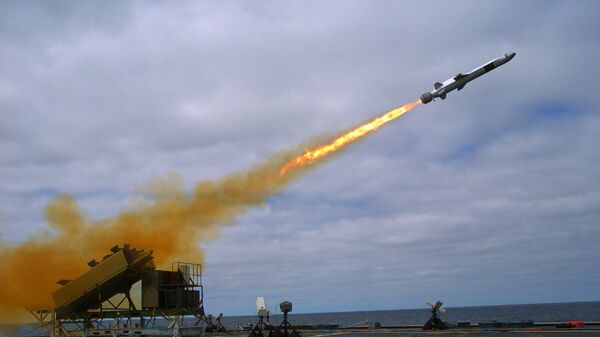General Ben Hodges, former commander of United States Army Europe (USAREUR), has suggested that after leaving the Intermediate-Range Nuclear Forces Treaty (INF), the US will increase the potential of its missile defence system in Europe without focusing on deploying its cruise missiles to the continent.
“The technologies have changed so much that it may not be necessary”, Hodges told Sputnik.
He declined to comment on the capabilities of the existing US missile defence systems in terms of intercepting the latest Russian hypersonic missiles, citing a lack of information on the matter.
READ MORE: US' INF Treaty Withdrawal Raises ‘Fears of a Renewed Full-On Arms Race'
He accused Russia of violating the INF Treaty, which Hodges believes may still be saved. At the same time, he refused to comment on Russian concerns about the agreement-related violations by the US.
According to him, the existence of the INF Treaty is better than its absence, since it serves as a basis for greater security and stability.
Hodges did not elaborate on how the treaty could be replaced but noted that in any case, “transparency and a clear protocol on compliance with observers” should be a bottom line of the issue of arms control.
Separately, he predicted that the US “will continue the development of its missile defence program […] to protect European citizens”, something that he said he tried to improve when he was the USAREUR Commander.
READ MORE: Trump Hopes to Negotiate 'Much Better' Deal Than INF Suspended by US
Hodges’ comments came amid media reports that the US plans to test two missile systems banned under the INF Treaty, and that a new cruise missile is scheduled to be tested in August, while a longer-range ballistic missile will be test-launched in November.
The reports came after Russian President Vladimir Putin signed a decree in early March on the suspension of the implementation of the INF Treaty between Moscow and Washington “until the United States rectifies violations of its commitments under the said Treaty or until its termination”.
UN Secretary-General Antonio Guterres warned that Europe would be most vulnerable to any negative consequences of the potential collapse of the INF Treaty.
German Economy and Energy Minister Peter Altmaier said, in turn, that he does not rule out a new arms race in the event of the termination of the agreement.
READ MORE: Russia May Respond to US Exit From INF With Ground-Based Kalibr Missile – Report
Russia has repeatedly denied the allegations that the missile violates the treaty, pointing out that American missile defence systems deployed in Europe can be re-purposed for offensive use and therefore are themselves violating the accord.
The INF Treaty was signed by the Soviet Union and the US in 1987, and provides for the elimination of all nuclear-armed ground-launched ballistic and cruise missiles that operate at ranges of between 500 and 5,500 kilometres.



